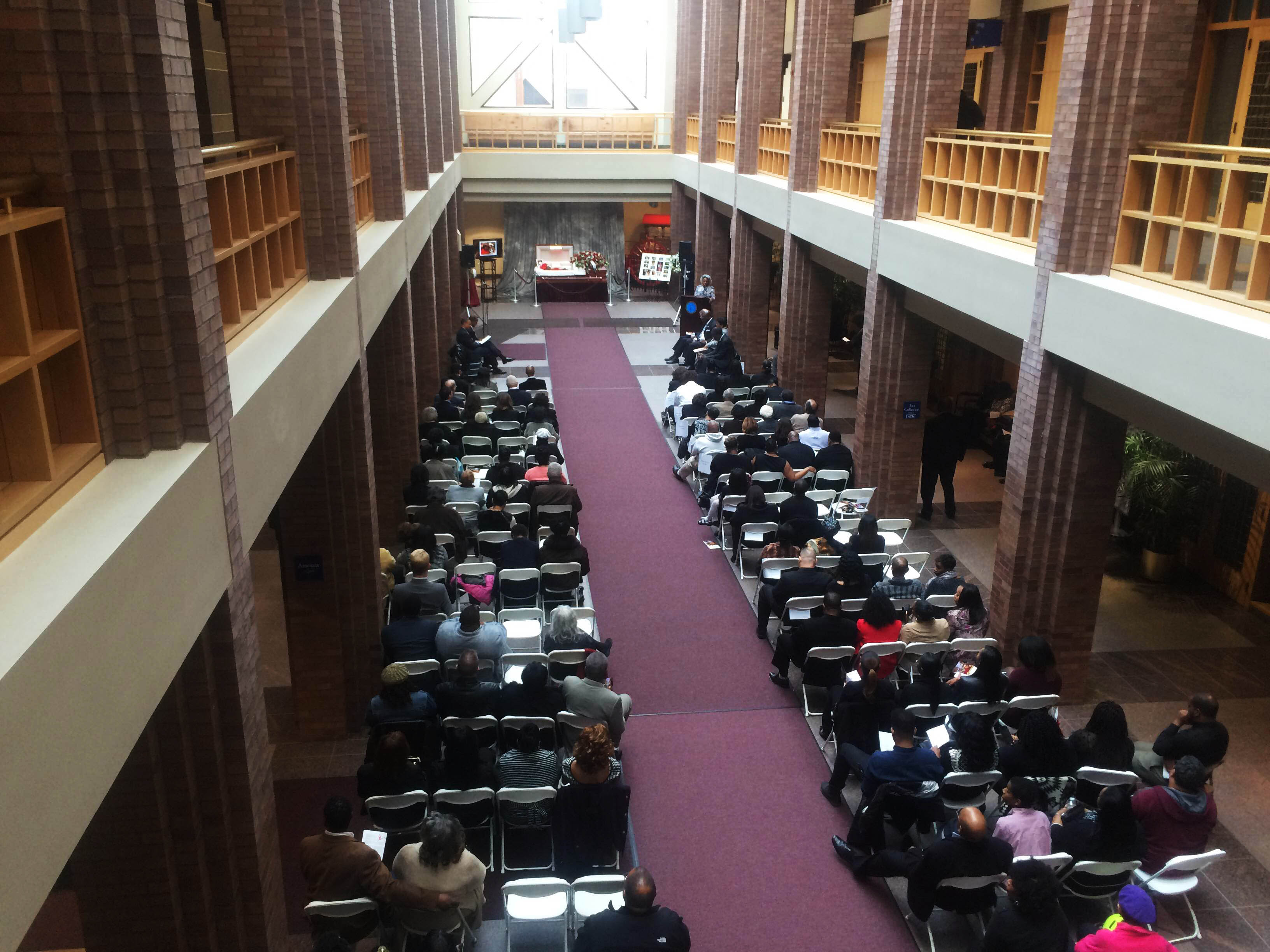
Few New Haveners are granted the privilege of having their wake in City Hall.
But on a cloudy Friday afternoon, hundreds of mourners gathered there to celebrate the life of Elsie Cofield, a prominent New Haven HIV/AIDS activist who died earlier this month at the age of 92.
Born in North Carolina in 1924, Cofield told her kindergarten teacher that she would become a teacher and marry a preacher. She realized both of those dreams in Connecticut, where she taught in Hamden for 31 years and was the “first lady and surrogate mother” of the Immanuel Missionary Baptist Church, where her husband Rev. Curtis Cofield II preached.
After retiring from teaching, Cofield turned to activism. She set her sights on tackling HIV/AIDS, and in 1987 founded the AIDS Interfaith Network to combat the growing epidemic in the city by providing housing, transportation and other social services to New Haven residents living with HIV and AIDS.
The memorial service celebrated the significance of Cofield’s life, as well as the number of lives her work impacted. Pastors preached and a choir sang, as Connecticut dignitaries delivered remarks celebrating and eulogizing Cofield’s many years of service.
“There are a few people who we can say changed the face of our community,” U.S. Rep. Rosa DeLauro said. “Elsie was a pillar of this community, and she can never be replaced.”
Cofield, DeLauro said, predicated her life on loving her neighbor, a model of civic participation for us all, DeLauro added.
William Dyson, a former state representative who worked with Cofield on the AIDS Interfaith Network, credited Cofield with taking on the challenge when nobody else was willing to.
“There was a time in this city in which the issue of AIDS was not to be discussed, as it wreaked all kinds of havoc throughout the community,” Dyson said. “There was one voice that spoke for a community that did not want to embrace this notion of AIDS … Elsie embraced that fact, and it was such a blessing.”
When Cofield began her work on AIDS in the late 1980s, the disease remained taboo among many Americans who were unwilling to face the threat it posed. Dyson noted the city has benefited greatly from Cofield’s work, especially from her establishment of a nursing home exclusively for people with AIDS. The nursing home, established roughly 20 years ago, still stands today.
For Mayor Toni Harp, who worked alongside Dyson and Cofield as a state senator, Cofield’s death has given the activist a kind of renewed life.
“This week, [Cofield] was once again the caring, nurturing school teacher,” Harp said. “She was once again working tirelessly alongside her late husband, and she was once again caring for and nurturing HIV/AIDS patients through the interfaith network they co-founded.”
Cofield’s influence on her community extended far beyond her work with HIV/AIDS patients. As a schoolteacher in Hamden, she touched the lives of hundreds of students who passed through her classroom. As the wife of a pastor, she was also involved in the spiritual life of her community.
Rev. Keith King of the Christian Tabernacle Baptist Church remarked on the influence of Cofield’s late husband before he read from 1 Corinthians. Rev. Curtis Cofield, he said, was a “giant of a man,” but his wife was also a “giant of a woman” who stood outside his shadow.
For Veronica Douglas-Givan, Cofield was a mentor and a friend. Referencing a West African proverb that says it takes a village to raise a child, she said Cofield was “an important part of that village” and “a pillar in our community.”
U.S. Sen. Richard Blumenthal LAW ’73 remembered Cofield as a model of public service, a woman who focused on giving all she could, and said she always tried to look for the good in people, no matter their external circumstances.
Cofield did not toil silently in her efforts to end the scourge of AIDS in New Haven. Yale Divinity School gave her an honorary degree, and she was a recipient of a Gandhi, King, Ikeda Legacy of Building Peace Award. Not far from Yale’s campus, a street in the Dwight neighborhood was named in her honor. And, when President Bill Clinton LAW ’73 announced a new initiative to combat AIDS in inner cities, he invited Cofield to stand by his side.
Though Cofield is gone, the work she has done will live on, Dyson said.
“She was an individual who committed herself to do those things that others would not,” he said. “Her manifestation of caring for others lives on long after. Let the work I’ve done speak for me, and Elsie’s work speak for her, and it will inspire many others.”
Interested in getting more news about New Haven? Join our newsletter!







